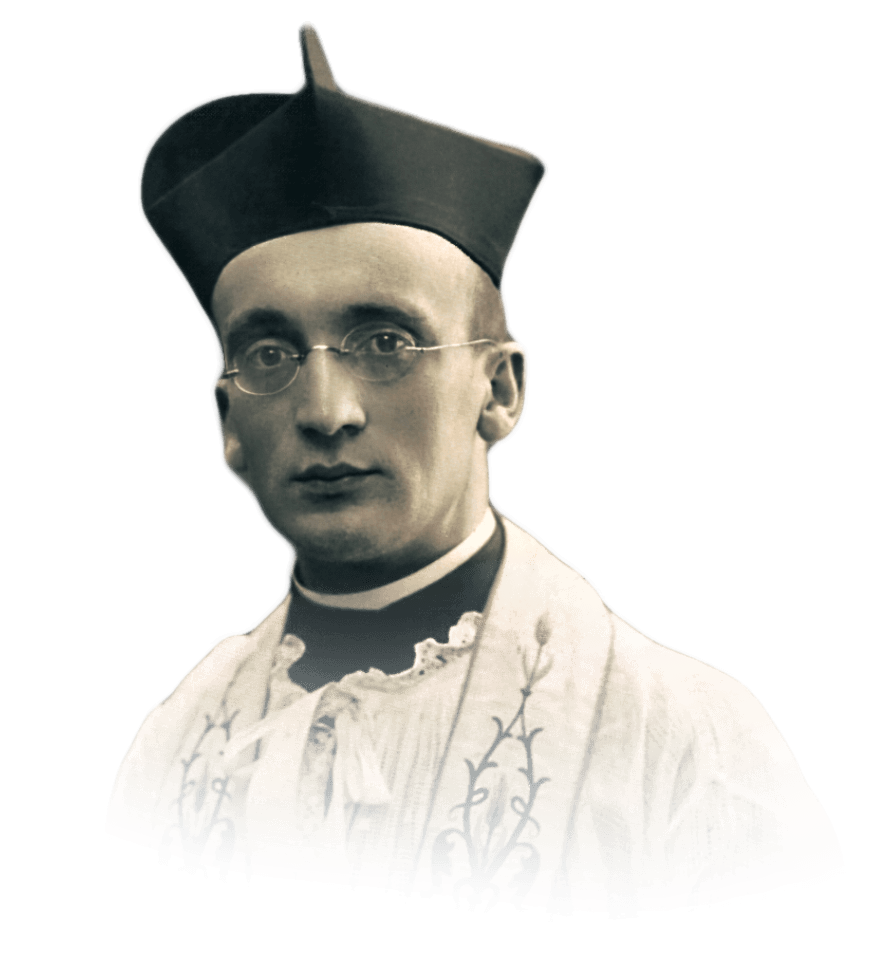

Beatified on 13 June 1999 in Warsaw in a group of 108 Polish martyrs of World War II.
life
life
Fr. Stanislaus Kubista SVD was born on 27th September 1898 in Kostuchna near Mikołów, in the present diocese of Katowice. His father, also Stanislaus, was a forester. He was a man of deep piety, prudence and calm. His mother, Franciszka Czempska, a woman of particular diligence and devotion, was fully dedicated to bringing up her six sons and three daughters. Stanislaus was the fifth child in the family and in terms of character he took after his parents.
The deeply religious atmosphere at the Kubistas resulted in providing vocations. Anna, the eldest daughter, joined a monastery in Vienna, where she died in 1918. The Kubistas had a particular devotion to Our Lady of the Rosary and they prayed one part of the rosary every day. Stanislaus liked to decorate the home altar.
Stanislaus attended a German school but he read books in Polish at home and deepened what he had learned at school working on it at home in Polish. He got acquainted with the missionary idea quite early. An SVD brother from Nysa propagating missionary books and pamphlets, also in Polish, was a frequent guest at his family home. Father Michatz, a curate from Mikołów noticed Stanislaus' interest in missions. When the boy completed his primary education the curate arranged his admission into the Minor Missionary Seminary of the Society of the Divine Word in Nysa. Paweł Martela, Stanislaus' closest cousin, lived there already as Br. Solomon. Unfortunately, he died during the First World War.
Stanislaus could not finish his studies undisturbed. He was called up in the end of May 1917, trained as a telephone and radiotelegraph operator, and sent to the French front. He stayed there till the armistice and withdrawal of the German troops. Then, he was stationed at the garrison in Szczecin and demobilized from there in1919. He went to visit his family. They were grateful to God for seeing him again, the more that his elder brother did not come back. He was killed on the Belgian front in 1914.
Stanislaus resumed his studies in Nysa. In 1920 he successfully passed the examinations accomplishing his secondary education... Three months later he joined the novitiate of the Society of the Divine Word in St. Gabriel's House in Mödling, near Vienna. He took his first religious vows one year later. Completing his two years of philosophical studies and four years of theology he was admitted to the perpetual vows which he took on 29th September 1926.
In the opinions of his teachers he was: a little melancholic, silent and modest; embodiment of calm; slightly reserved; worked with calm and a sense for final goal; observant of the rules; supporter of order, open-hearted; ... tormented a bit by nationalism...; accurate in each kind of work; reliable. His confreres had no hesitations in recommending him for final vows. As far as his education was concerned his marks were within the range from good to very good. His teachers noted that he had a talent for writing, also in Polish, and that he could be a good teacher. He was ordained a sub-deacon on 17th October, a deacon on 19th December 1926, and finally a priest on 26 May 1927. He was 29, then.
His response to the question on his personal interests posed by his superiors went as follows: Literature and challenges in writing books. I long for the missionary and pastoral work. I do not feel inclined towards teaching. As far as missions are concerned I thought about Honan, Kansu, the Philippines and New Guinea. My health is in excellent condition.
While still a student, he wrote to the Polish papers from time to time. His articles passed through Fathers Szajca and Drobny.
In autumn 1928 he was assigned to the house in Górna Grupa. Bidding him farewell his mother told him:
My son, be faithful to what you have chosen." He remained faithful until death. The superiors wanted to see him in action and appointed him as the administrator of the house. There were about 300 people there - brothers, priests, students of the minor seminary, postulants and novices. He was put in charge of the regional procure the next year and the Generalate received a note saying: "the economy of the house remains in good hands…
Besides the posts of the administrator of the house and regional procurator Fr. Kubista accepted the job of editor-in-chief of a periodical called "A Little Missionary" in autumn 1929. After the departure of Fr. Drapiewski Fr. Kubista was appointed rector of the house in Bruczków. He had participated in editing "A Little Missionary's Calendar" and „Family Treasure" since 1933. He founded another periodical "St. Joseph's Herald" in 1937. It was published temporarily along with "Family Treasure". Under his management the number of readers increased significantly. Fr. Kubista wrote articles for all these periodicals. His articles had deep theological and practical dimensions. He wrote a kind of meditations which showed the depth of his soul and his practical approach to many issues for the "Family Treasure". He was also an author of several short stories and novels: "A Story from the African Bush", "Queen Matamba", "Birgid", "In Darkness and in Light". He summarized the programme of his work in one sentence: "Our endeavours through all these years aimed at collaboration with Jesus in saving souls" ("A Little Missionary" 1937 p. 94). He also wrote a drama "Cross and Sun" which told the story of the Peruvian Inkas. That drama was put on stage in many towns and villages before 1940 and in many seminaries after the war.
Fr. Kubista had a deep devotion to St. Joseph and commended his works to the Saint's gracious intercession. He even dedicated his new periodical to him. Fr. Kubista attributed the successful construction of the printing-press building and purchase of the necessary machines to St. Joseph's help. Trusting in that help he embarked upon enlargement of the main house in spite of the lack of sufficient funds.
The Second World War caught Fr. Kubista at the height of his work. The first conflict with the Gestapo took place after the official ban on paying the Poles outstanding money. Fr. Kubista wanted to pay a few hundred zloty to a poor widow. When he looked deeply into the Gestapo official's eyes the latter was thrown into confusion and seemed to have been dumbfounded by the power from above. According to witnesses Fr. Kubista attributed it to St.Joseph's help. Those days Fr. Stanislaus saw the destruction of his cherished printing-press and the confiscation of the provisions he had gathered for the community to survive winter.
The situation worsened after October 27th, 1939. That day all priests and brothers, 64 in number, were arrested and the house was turned into an internment camp. As out of sheer irony, it happened on the solemnity of Christ the King. In the following days the Gestapo sent there eighty religious and diocesan clergy and seminarians from the area. The farm, the land and the livestock were confiscated leaving the occupants of the camp without means for survival. Fr. Stanislaus, as the rector of the house, again commended the problem to St.Joseph's intercession and the solution was eventually found. The Gestapo agreed to carry food and fuel from the parishes of the imprisoned priests.
martyrdom
martyrdom
On February 5th, 1940, in the bleak midwinter with the temperature 28 degrees below zero, all the internees were taken by three trucks to Nowy Port, a branch of the Stutthof concentration camp. There, the prisoners suffered from appalling sanitarian conditions, cold, starvation, heavy work and inhuman treatment. They had only one consolation in those days. On March 21st, 1940, which was Maundy Thursday, they succeeded in celebrating Eucharist and received Holy Communion. It was done in secret. Fr. Alojzy Liguda, the rector of Górna Grupa, was one of the participants. That Communion turned out to be the viaticum for Fr. Kubista. We can hardly imagine what he felt like that time and how he managed to keep up his faithfulness to the Lord.
About that time Fr. Stanislaus, who was always well, became weak and got ill. Suffering from hypothermia his organism could not absorb the camp food but there was nothing else to eat. The policy of deliberate extermination of the clergy was that time in full swing. Fr. Kubista had to work just like the other prisoners. They had to senselessly reshuffle snow from one place to another. Since Fr. Kubista was a sensitive man his suffering was double.
On April 9th, 1940 the prisoners were ordered to board a freight train and were taken to the Sachsenhausen concentration camp. Fr. Kubista's flu turned into pneumonia. Despite his illness he still had to work just as much as the others. Eventually he became so weak that his neighbours had to literally carry him to the appeal ground. He persevered with calm placing his trust in God. The trusty marked him as a candidate for death and ordered to leave Fr. Kubista in the toilets to die. Fr. Stanislaus stayed there for three nights. A witness, Fr. Dominik Józef SVD, described the last moments of Fr. Stanislaus that way:
In the evening I tried to prepare him a kind of bed. I bound him in a blanket but I had no pillow and no linen. He was thankful, as always and whispered: 'It is near. I am very weak. My God, I wish I could be in Górna Grupa... but He had different plans. Thy will be done!' I secretly listened to his confession. On April 26th, 1940 when we came back after a roll-call we laid him down on the hard floor near a wall. He laid there as if in a grave. We had to stand at attention. The block-man, that is the man in charge of our barrack, entered unexpectedly. He was a German prisoner... a simple criminal... how many human beings he sent to the other world! To the tortures that were practiced regularly he added his own cruelty. He displayed his particular hatred towards certain kinds of people excessively in words and actions. Priests belonged to that category of people. He did not omit any occasion to torment them. At that moment he gave us his bestial look and glanced at Fr. Kubista with a satanic joy. He approached him and said: 'You have nothing to live for!' Then he phlegmatically stepped on Fr. Kubista's chest with one foot and put the other on his throat. Pressing heavily he broke his collar bones. A short hoarse sound and convulsions completed the martyr's life.
